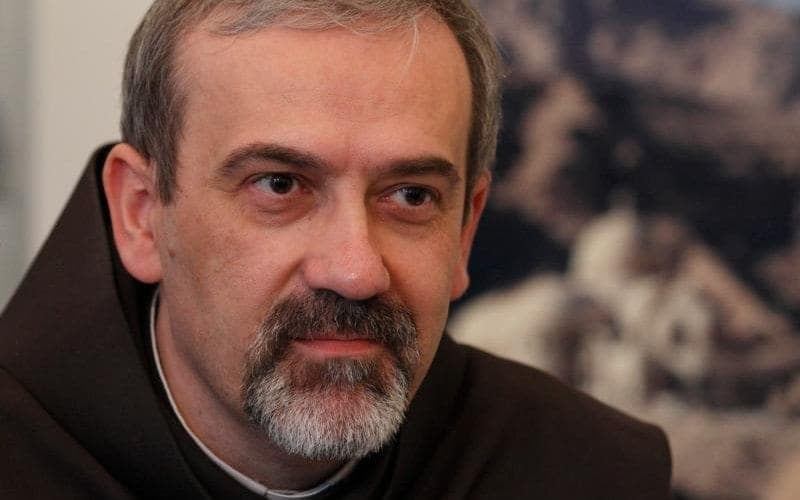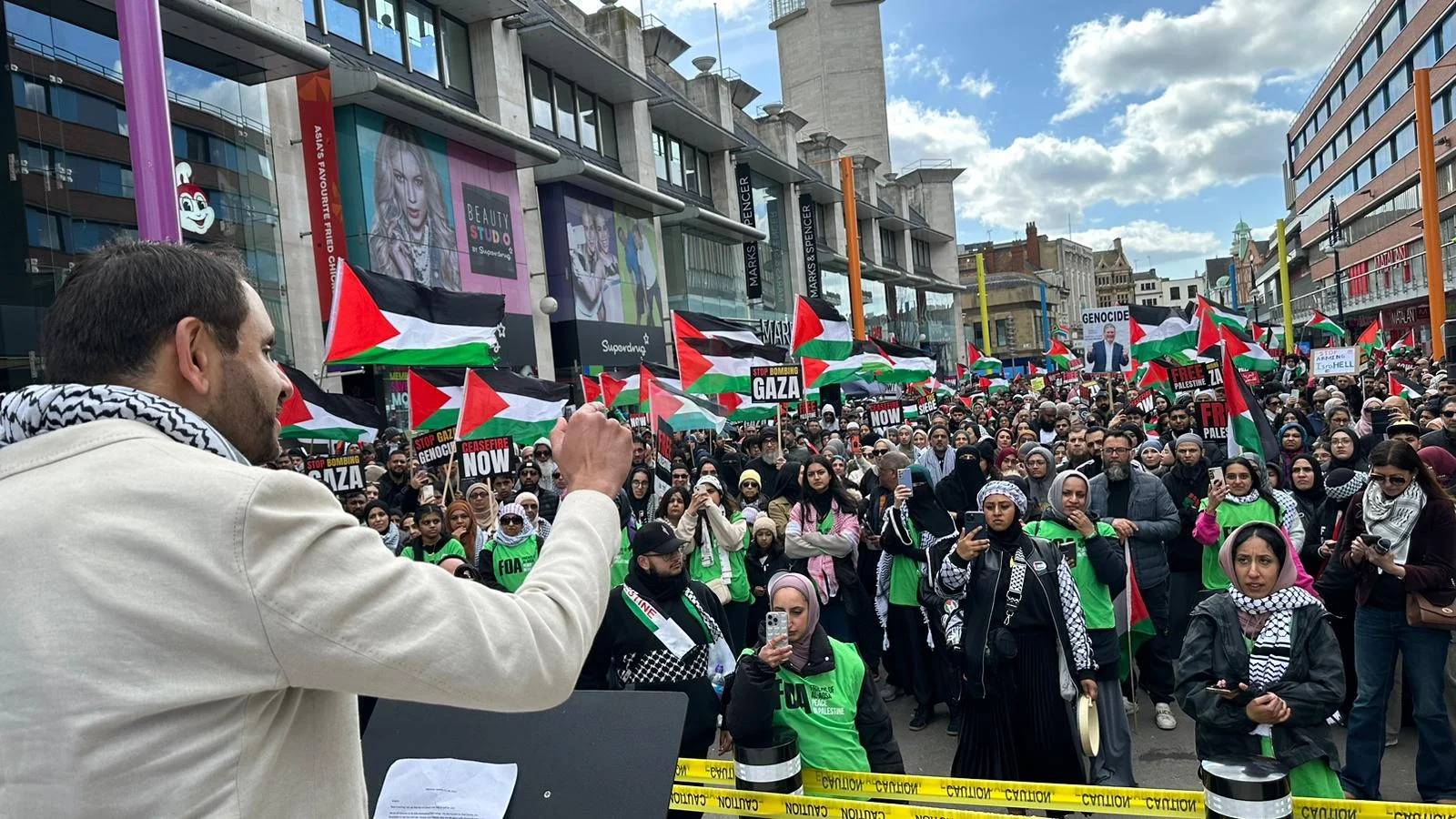While the old saying “personnel is policy” applies in a variety of settings, perhaps nowhere does it hold as thoroughly as in the Catholic Church, where officials enjoy a wide degree of latitude in setting priorities and deciding how official teaching will be applied in their particular circumstances.
Nothing any pope ever does, therefore, is as consequential as the people he chooses to put in charge. On Wednesday, one of the more striking picks so far by Pope Francis officially took up his new duties, when Archbishop Pierbattista Pizzaballa formally entered Jerusalem through the Jaffa Gate to become the Apostolic Administrator of the Latin Patriarchate, which includes Israel, Palestine and Jordan.
Often when an apostolic administrator is named, it’s seen as an interim move. That’s formally true with Pizzaballa as well, although the perception both in Rome and in the Middle East is that he’s very much Francis’s man, and his “interim” role could go on a while.
The choice of the 51-year-old Italian Franciscan and former Custodian of the Holy Land in June was a head-turning move by Francis, for a couple of reasons.
First, while there’s a long tradition of Italians being named the Patriarch of Jerusalem, for the last thirty years the office was held by Arabs – Michele Sabbah, who served from 1987 to 2008, is a Palestinian born in Nazareth, and Fouad Twal, who led from 2008 until this past June, is a Jordanian.
Beginning under Pope Paul VI in the 1960s, the strong Vatican preference has been for local churches to be led by prelates indigenous to that culture, and it was more or less assumed that the era of “foreign” leadership in the Holy Land was closed.
Pizzaballa said Wednesday that policy remains in force, and, in a characteristically humble touch, added that he’ll serve only until a “proper and better candidate” is selected.
Second, while Pizzaballa is just too nice a guy not to like on a personal level (he’s a vintage Franciscan in that regard), it’s well-known that a segment of the clergy in the Patriarchate of Jerusalem has long looked on him with suspicion because of his closeness to Israel and Jewish culture.
Born in Bergamo, Pizzaballa went on to become a scripture scholar, doing his doctoral work at the Franciscan-run Biblical institute in Jerusalem. His specialty was Biblical Hebrew and Judaism, and for a time his command of Arabic was fairly rudimentary.
When he was working for the Franciscan Custody of the Holy Land, beginning in 1990, he was known for his fondness for the small community of Hebrew-speaking Catholics in Israel, and served for a time as the pastor of the Hebrew-speaking parish in Jerusalem. (There are now seven Hebrew-speaking Catholic communities in Israel, composed of a handful of Jewish converts as well as foreign students, migrants and asylum seekers and religious from around the world.)
From 2001 to 2004 Pizzaballa was the superior of a friary that occupies itself with the pastoral care of Hebrew-speakers, and in which the friars themselves speak Hebrew.
In the zero/sum political game of the Middle East, in which a friend of Israel often is automatically seen as an enemy of Palestine and the Arab cause, all that has made Pizzaballa suspect in the eyes of some Arab clergy, and something of an arresting choice to lead a patriarchate whose membership is overwhelmingly Arab.
(Pizzaballa also has a reputation for personal integrity and Franciscan-style simplicity, and in a neighborhood where management of church funds is a chronic headache, those qualities don’t hurt either.)
The counter-intuitive factors to the appointment, however, could just be the genius of it, depending on how things play out.
The Patriarch of Jerusalem is, de facto, a primary spokesman and point of reference for Christians all across the Middle East, and therefore a key interlocutor with both the international community and also the important regional players, which obviously includes Israel.
For the past thirty years, when many Israelis looked at Sabbah or Twal, no matter what they said or did, it was hard not to regard them at some gut level as the enemy – figures who represent peoples and points of view hostile to Israeli interests.
In general, because most senior churchmen in the region are Arabs, they naturally see the world through Arab eyes, and can at times come off as a bit partisan in their pronouncements on Palestine, on Syria and Iraq, and any number of other matters.
Pizzaballa not only doesn’t carry the same baggage, but he’s seen as a friend of both Judaism and Israel – someone who knows Jewish tradition almost as well as the most learned rabbis, and whose long experience of living in Israeli society has given him an insider’s grasp of its dynamics.
That’s not to say the new Apostolic Administrator is any kind of apologist for Israel.
When a wave of attacks on Christian churches by militant Israeli settlers rolled through the country in 2012, Pizzaballa was pointedly critical of what he saw as a failed security and police response. He’s been outspokenly against the construction of Israel’s security barrier between the West Bank and Jerusalem, denounced by Palestinians as the “apartheid wall,” taking part in protests in 2015.
On the other hand, Pizzaballa has been equally critical of what he regards as a tendency by Palestinian leaders on the West Bank and the Gaza Strip to scapegoat Israel for all their problems.
“If the weather isn’t good, the cause is the occupation,” he once quipped.
The fact that Pizzaballa is respected on both sides of the world’s most intractable divide was clear from the fact that Francis entrusted him with organizing his peace prayer in the Vatican gardens in June 2014, which brought together then-Israeli President Shimon Peres and Palestinian leader Mahmoud Abbas.
In a word, what Pizzaballa brings is balance – a quality sorely lacking in the Middle East generally, and, at times, even in the region’s ecclesiastical leadership. What Francis has done is to give the church in the Holy Land a chance to make a clean start under the leadership of someone who can speak credibly, and sympathetically, to everyone.
In a news conference following his official entrance on Wednesday, Pizzaballa said he sees Christian unity, inter-religious dialogue and the broader situation in the Middle East as among his immediate priorities.
Of course, given the long history of failed efforts to break the logjam in the Middle East, it would be highly unrealistic to suggest that Pizzaballa, by himself, will wave a magic wand and somehow get it done.
Still, if Pizzaballa is able to open channels of communication where they didn’t previously exist, that alone could make the appointment, however long it lasts, not only one of Francis’s most unusual but also one of his masterstrokes.
















